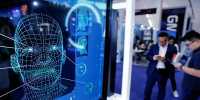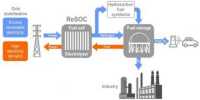In the field of quantum computing, the next major leap in computer technology, a significant step forward has been made. These devices will one day be able to use quantum mechanics to perform tasks that even the most powerful supercomputers are incapable of. New research demonstrates that we do not have to abandon silicon, which is at the heart of today’s semiconductor technology. Researchers have demonstrated that a silicon-based quantum gadget with extraordinarily high accuracy may create in three publications published in the journal Nature.
The qubit, or quantum bit, is the fundamental computational unit in a quantum computer. A qubit, unlike a bit, can exist in a superposition of states, providing for greater power and versatility. The researchers from the University Of New South Wales (UNSW) reported 99.95 percent accuracy for a 1-qubit setup and 99.37 percent for a 2-qubit setup in their study. The Delft University of Technology team in the Netherlands got 99.87 percent and 99.65 percent, respectively, while the RIKEN team in Japan achieved 99.84 percent and 99.51 percent. These three autonomous teams have truly exceptional values.
Professor Andrea Morello, the main author of the UNSW article, stated in a statement, “Today’s publication indicates our procedures were 99 percent error-free.” “Because faults are so few, they can be detected and corrected when they occur. This demonstrates that quantum computers with sufficient scale and power to handle meaningful computation may build. This research is a significant step along the path that will get us there.”
Qubits were approached differently by the three teams. Morello’s team used a pair of phosphorous nuclei implanted in silicon as qubits, using their nuclear spin — a quantum mechanics feature similar to angular momentum. In quantum dots, the RIKEN and TU Delft researchers used electron spin qubits. As a result, silicon with various qubits has emerged as a credible contender for the foundation architecture of future quantum computers. “The presented result puts spin qubits on par with superconducting circuits and ion traps in terms of universal quantum control performance for the first time.”
In a statement, Seigo Tarucha, the leader of the RIKEN research group, said, “This study reveals that silicon quantum computers, together with superconductivity and ion traps, are potential prospects for research and development toward the realization of large-scale quantum computers.” To apply correction without interrupting the system, quantum computers require accuracy of greater than 99 percent. The teams now want to scale up the processors, adding additional qubits, and testing sophisticated calculations now that this has proven too possible.













